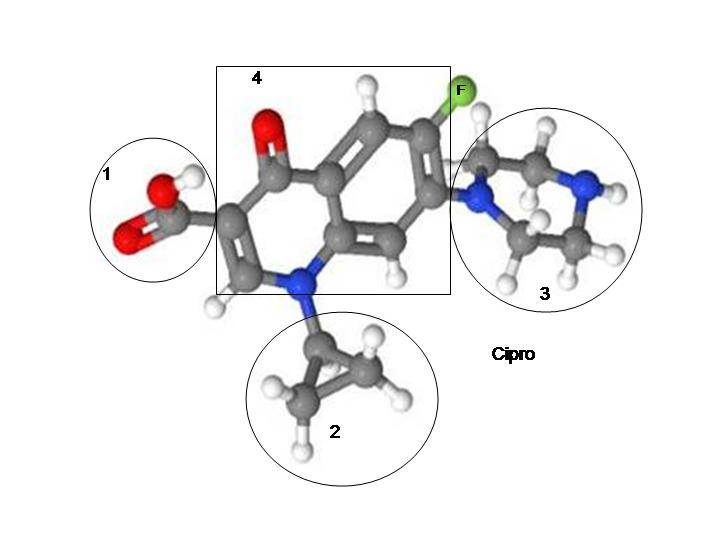What is the pathology and what is the cause of floxing??? I’ve jumbled up theories of cause and pathology in the following list:
Is it an autoimmune disease/reaction? ‘Cause that makes sense. Many of the symptoms are similar to those of known autoimmune diseases like Rheumatoid Arthritis, Multiple Sclerosis or Lupus. The connective tissue, tendons, ligaments, fascia, etc. of Floxies is being attacked. If it’s being attacked by the immune system, well, that’s an autoimmune disease. Which leads me to – AN ANTIBIOTIC TRIGGERED AN AUTO-IMMUNE REACTION – ARE YOU EFFING SERIOUS??? But it may not be….
Is it a serum sickness? ‘Cause that makes sense. My uncle who is an orthopedic surgeon thinks that it is. This article describes floxing as a serum sickness – http://www.ncbi.nlm.nih.gov/pmc/articles/PMC171716/
Is it a toxic reaction? ‘Cause that makes sense. A drug is a toxin, right? So if we get it out of our systems, we’ll be fine, right? Unfortunately, this, the simplest of explanations, is the easiest to dismiss. If it was a toxic reaction, people wouldn’t have delayed reactions. When I went to the doctor, two weeks after I finished taking Cipro, and asked her if my symptoms had anything to do with the Cipro, she said no because (she didn’t know any better and) the Cipro should have been out of my system by then. She’s probably right. The Cipro had been metabolized. But while it was there, it did something horrible to every cell in my body. Maybe there are lingering pockets of toxins that we can just clean up and be cured…. But I don’t think so.
Is it an inhibition of the CYP1A2 enzyme? ‘Cause that makes sense. Fluoroquinolones inhibit the CYP1A2 enzyme in the liver, according to http://www.pharmacytimes.com/publications/issue/2007/2007-11/2007-11-8279. Cures include smoking tobacco and eating broccoli. You don’t want to start smoking, I wouldn’t/don’t…. But if it will enable you to walk, well, I can’t blame you.
Is it mitochondrial damage? The general consensus among Floxies is that their mitochondria is damaged. Another Floxie blog goes into this theory – http://www.floxedbylevaquin.com/p/mitochondrial-disease.html. This may be an entirely false line of logic seeing as cellular energy and how energetic you feel are different, but mitochondrial damage may explain the exhaustion that Floxies feel. Harvard researchers seem to be on this track – http://www.worldpharmanews.com/research/2481-dodging-antibiotic-side-effects
Is it dna damage? Fluoroquinolones “prevent bacterial DNA from unwinding and duplicating” (according to http://en.wikipedia.org/wiki/Fluoroquinolone). Do they also prevent our DNA from unwinding and duplicating?
Is it an inability to absorb magnesium and other minerals? Given that magnesium and other mineral supplements are the only supplements that seem to reliably help most Floxies, and that many floxing symptoms are similar to that of magnesium deficiency this explanation seems pretty likely. Unfortunately, popping a magnesium pill every day doesn’t seem to fix the problem. Also, according to “Musculoskeletal Complications of Fluoroquinolones: Guidelines and Precautions for Usage in the Athletic Population” by Doctors Hall, Finnoff and Smith (do I have to site it correctly on a blog?), “Results of studies have shown that magnesium-deficient diets are capable of producing cartilage changes similar to that caused by fluoroquinolone exposure in both canines and rats, and dietary magnesium supplementation was able to reduce the histologic changes in rats exposed to fluoroquinolones.” More information regarding the relationship between floxing and magnesium can be found in the article which can be found in Musculoskeletal Medicine, Vol. 3, pages 132-142, February 2011, published by the American Academy of Physical Medicine and Rehabilitation. Email me for a copy. Also, here is a list of drugs that deplete magnesium from the body. Cipro and Levquin are on it – http://www.jigsawhealth.com/resources/drug-muggers-suzy-cohen-magnesium
Is it a methylation issue / MTHFR gene mutation? A lot of Floxies have been tested for the MTHFR gene mutation and all who have tested and reported back have had the mutation. I honestly don’t know enough about this line of thinking to comment much on it. Here’s some info – http://www.methyl-life.com/index.html.
Is it something to do with blood? Iron, chlorophyll and beets are all supposed to help production of red blood cells, and those are the things that help me the most. Maybe our blood doesn’t carry oxygen as well as it did. Why/how did fluoroquinolones effect my blood’s ability to carry oxygen? I have no idea. I don’t even know that the above statement is true. I do know that blood tonics such as iron, chlorophyll and beets help me though.
Is it something that inhibits our absorbtion of uridine? Beets make me feel better, and I’ve been having Brewer’s Yeast daily for about a year. Maybe the uridine in those things is helpful. http://www.spanimax.com/index.php/omega-3-and-uridine
Is it something hormonal? I know that my symptoms get significantly worse just before my period and during my period. Hormones have some effect on floxing – I just don’t know what it is. Hormones may explain cycling too.
Is it something going hay-wire in our Gaba receptors? Dr. Flockhart, a doctor who has seen many Floxies, believes that floxing causes interference with the Gaba receptors throughout our brains and bodies.
Is a neurotoxin produced by the damaged/bad bacteria after exposure to fluoroquinolones (or the die-off of the “good” bacteria that keep the bad ones in check)? There are several interesting things noted in Beyond Antibiotics by Michael Schmidt. Dr. Schmidt points out that both tartaric acid and tricarbalyte are noxious compounds produced by bad gut bacteria when good gut bacteria in the gut are not available to keep them in check. Tartaric acid “is a known poison of the energy system of mitochondria,” and tricarbalyte “binds to magnesium and may reduce the availability of dietary magnesium.” (pages 28-29) Dr. Schmidt also says that antibiotics cause the production of clostridiam which is a known neurotoxin producing organism (p. 44). And, on page 47 he says, “Whever a CPY enzyme is blocked or slowed, its ability to detoxify other drugs can be impaired.” My thought on this is that the fluoroquinolones slowed our CPY enzymes then the NSAIDs, steroids, other toxins in our system, did other damage – and maybe that’s why each of us have so many different symptoms.
Also, John Travis reported in Science News (July 2003;164) that research performed by John F. Prescott found that certain antibiotics, such as the fluoroquinolones, the class of antibiotics that includes the name-brands and generic brands of Levaquin[R], Cipro[R], Tequin[R], and Avelox[R], actually are known to trigger a type of virus called bacteriophages (viruses that can infect bacteria) to change the genetic sequencing of the bacteria, causing the bacterium they have infected to start producing toxins. These viruses can act as genetic delivery vans, invading bacteria, such as spirochetes, often lying dormant, until activated by a change in the host (your body’s) environment. Once activated, these viruses insert their toxin-generating genes into the bacterial chromosomes. These viruses can turn basically harmless bacterium into killers through this genetic sequencing of toxins (Travis 2003). Not only are these toxins released through bacteria die-off and not only can antibiotics actually increase the production of the toxins, but these viruses can cause the bacteria to rupture, spilling their toxins into the body (Waldor 2004). http://www.benbrew.com/lb/lyme5.pdf
Did we have something in our system that “supercharged” the fluoroquinolone antibiotics? Maybe we had trace amounts of silver in our system that made the FQs many times stronger – http://www.scientificamerican.com/article.cfm?id=silver-makes-antibiotics-thousands-of-times-more-effective. Or, maybe we had some grapefruit juice in our system and it produced that enzyme that kept us from metabolizing the drugs.
FQs are topoisomerase inhibitors and that the primary cause of our issues is likely DNA and mtDNA damage from massive transcription errors as a result of the chemical inhibition of proper cellular replication. That is the effect of a topoisomerase inhibitor, after all. They simply affect both prokaryotic AND eukaryotic DNA, despite what the literature states. Recent research has proven this about FQs. That is why you get the delayed effect. It takes weeks to months for those damaged cells to replicate.
http://biology.about.com/od/cellanatomy/a/eukaryprokarycells.htm
Further, “FQs are currently being investigated for their chemotherapeutic properties. This research would not be possible if FQs didn’t affect eukaryotic cells. FQs damage DNA by via inhibition of topoisomerase enzymes. This causes the DNA to not unwind, replicate, and then rewind back into the double helix structure correctly. This introduces transcription errors into the DNA itself. The body then recognizes these errors and attacks. This process should be over in a relatively short period of time. Unfortunately, I also think FQs alter the DNA of long lasting immune cells (killler B and T cells for example) which normally remain in the body for years or decades. I think once this happens, the body then develops the autoimmune issues. Also, it is a fact that once you cause the DNA and mtDNA damage, then you see a huge spike in the amount of ROS in the body. There was a study done of Indian men given Cipro for UTIs that proved that. What would you expect the body to do if you damage the ability of the mito to efficiently turn food into energy? You would get an increase in the amount of reactive oxygen species causing a cascade of cellular damage. Also, it is well known that the human body would simply fall apart without many types of bacteria. Now what if you introduce a chemical into the body that destroys and/or causes mutations in the DNA of said bacteria? I think all of what I previously stated combines to cause our issues.”
Did Fluoroquinolones cause us to become Histamine Intolerant or to have excess histamine? Here are the ways that this makes sense. First, drugs can inhibit the enzymes that keep histamine levels in check. Fluoroquinolones aren’t listed as drugs that can do so, but NSAIDs, one category of drugs that can trigger a reaction to Fluoroquinolones, are – http://healthypixels.com/?p=1044. Second, “Histamine is versatile–it helps to regulate body functions as diverse as digestion, sleep, sexual function, blood pressure, and brain function. How does this one molecule do so many different things? The secret to histamine’s multi-faceted nature lies in which type of cell and which type of receptor it binds to. For example, when histamine binds to special cells in the stomach called parietal cells, they respond by producing stomach acid. When histamine binds to receptors on the surface of blood vessel cells, blood vessels dilate, dropping blood pressure. Small vessels called capillaries become leaky and fluids ooze out of them, which can lead to runny nose, watery eyes, and puffy skin/fluid retention. In the brain, histamine acts as a neurotransmitter, carrying chemical messages between nerve cells.” (from http://diagnosisdiet.com/histamine-intolerance/) Also, estrogen and histamine reinforce each other, which may explain why menstruating women have flare-ups of their floxing symptoms when they experience PMS. BUT, histamine doesn’t adequately explain a lot of other things. First, Fluoroquinolone Toxicity is NOT an allergic reaction, at least not in the sense that we think of allergic reactions, with an immediate, severe reaction that can include anaphylactic shock and ceasing of the reaction when exposure to the allergen has stopped and an antihistamine is administered. Adverse reactions to fluoroquinolones can begin weeks or even months after exposure to the drug has stopped; after it SHOULD be fully metabolized and out of the body. Also, antihistamine drugs like Benadryl, Claratin and Zyrtek don’t seem to do much for those who are suffering from Fluoroquinolone Toxicity.
Do fluoroquinolones damage the myelin sheath that protects nerves? Fluoroquinolones damage or disrupt the Central Nervous System, the Peripheral Nervous System and the Autonomic Nervous System. This leads me to believe that they damage or disrupt nerves over-all. Perhaps the myelin sheath that protects nerves is attacked by fluoroquinolones.
Do fluoroquinolones cause a massive amount of oxidative stress on the body and does that oxidative stress cause the damage? A 2011 study published in the Journal of Young Pharmacists found that, “There is significant and gradual elevation of lipid peroxide levels in patients on ciprofloxacin and levofloxacin.” They also found that “There was substantial depletion in both SOD (superoxide dismutase, “a free radical scavenging enzyme”) and glutathione levels” and that “On the 5th day of treatment, plasma antioxidant status decreased by 77.6%, 50.5% (and) 7.56% for ciprofloxacin, levofloxacin and gatifloxacin respectively.” The study also notes that administration of fluoroquinolones leads to a marked increase in the formation of Reactive Oxygen Species (ROS) and that “reactive free radicals overwhelms the antioxidant defence, lipid peroxidation of the cell membrane occurs. This causes disturbances in cell integrity leading to cell damage/death.”
All of these theories make sense and it would be really nice to know which one is correct. Basically, what the hell is going on in our bodies? Why are we falling apart? Why do some people get better and others don’t? Why do FQs effect some people and not others? It’s all so confusing and frustrating. If some research on where to even start could be done… that would be helpful.













This brings up a whole array of questions and your citations are a big help toward explaining adverse effects of these drugs. Good research!
Very well written! The only thing I’d care to add is that not all who have had the MTHFR testing have come back w/a mutation in this area. 17 floxies had this testing done about 3 years ago and some had homozygous mutations, some hetero, and several had neither… so floxing can happen with or w/o it.
Thank you for writing this! Great job and very helpful. I’m not even bothering with that MTHFR testing. What difference does it make? If I have the mutation there’s not much that can be done. I think it’s all a combo of everything. Definitely something with the liver for sure. Eating certain foods or taking certain supplements that harm the liver make my pain worse. Also, my b vitamin blood levels have been over the max since getting floxed and they are metabolized by the liver and small intestine. I won’t start smoking again, but do chew Nicorette. Not sure if that helps. I have adrenal insufficiency, not Cushings, so that theory doesn’t apply to me. God only knows what’s going on. I just wish NIH would fund projects on floxing.
I really like your style of writing. I feel you have covered everything so well. I thank you for your information and sharing job well done.
Like Like Like ! You came at it in every direction.
Very informative, but I’d like to add some things I’ve concluded about FQ related tendon damage.
There are many studies on pubmed.gov that yield conclusive data showing tendon damage being directly caused by fluoroquinolones through in vitro testing. Tendon cells (or tenocytes) are attacked by the antibiotic, which weakens the tendon by altering it’s cellular matrix – as the tenocytes die off, degeneration of the tendon fiber occurs. This reaction is called “Fluoroquinolone induced tendinosis (or “tendinopathy”). Although the source of the damage is too rarely studied, this TYPE of damage is very familiar to orthopedic doctors and physical therapists as tendinopathy is one of the main injuries they treat in athletes.
The mitochondria damage theory you mentioned is supported by this research, as it’s stated that the antibiotic attacks the mitochondria of the tenocytes, which as we learned in high school biology, would result in cell death. Whether or not FQs attack any other form of cells besides tendon and nerve cells, we can’t irrefutably say just yet. I suspect they do.
Nice list..thanks for compiling! Needs the oxidative stress and GABA receptor binding hypotheses added as explanations for the neuropsychiatric effects of floxing.
Hi! Would you mind if I share your blog with my myspace group?
There’s a lot of folks that I think would really appreciate your
content. Please let me know. Thank you
It’s in reality a great and helpful piece of information. I’m glad that you shared this
useful information with us. Please keep us up to
date like this. Thanks for sharing.
I wonder if 35% food grade hydrogen peroxide would help in any way? Any thoughts on this from anyone or has anyone researched or taken it?
Fluoro quinolone designed with toxic fluorides in molecule form so that could enter the BBB as well as inner part of the bacteria to enter the dna if there’s a virus living there (sounds like). But for me the mission is beyond that, it is the skull and bones agenda to cause severity in human being, so don’t be surprise if your cns (myelin or includes axons or systems like GABA transmitter and receptors or Supra Chiasmatic Nucleus SCN) or the Thalamus itself or the spinal cord already vanished and dried by this nuclear fluoride toxic just how they do it with pesticide the bugs in the farm, or just like how they kill and destroy grass and shrubs to point zero of their root in palm oil or rubber plantation. Fluorides works to create corrotion and to rupture and consume living being or others form similar with clorox destroying bugs so that can’t be traced anymore dna nor to regenerate any longer.
My neice is suffering severe psychiatric issues, total devastation
The “inhibition of the CYP1A2 enzyme” paragraph caught my attention, because I purposely started eating a lot more vegetables with the idea of getting more of my vitamins from food. I noticed I seem to feel better when I ate broccoli, but just thought I was eating better and getting extra minerals/vitamins/etc. Maybe this explains why I have some issues with taking some medicines after being floxed. Interesting …
Within 2 hours of takin LEVAQUIN my heart is racing, I’m sweaty, fatigued, have blurry vision, my eyeballs feel too big for their sockets, my back and tailbone feels like they are on fire and I’m having anxiety.
Probably not allergic, but definitely unable to tolerate this medication. I am a 71-year-old female with acute bronchitis, hence, the antibiotic regimen. This is FRIGHTENING.
Lisa,
After months of what I thought was being “cured,” I am now having frequent relapses that seem to coincide with my period.
I feel it coming on 4-5 days before I start and then the explosion goes off and I’m in horrid pain throughout my cycle. Have you found anything to ward this off? I refuse to go on any form of birth control as I’ve never responded well to such. I’m in the midst of one of the worst relapses to date, and I’d greatly appreciate any words of wisdom or advice.
What is up with the inflammation caused in floxing? Cipro caused a horrible eye reaction for me, resulting in tightness/pain behind the eye and photo-sensitivity. Most of the symptoms have went away, but 3 months later I am left with abnormal swelling in the under eye muscle. When I smile now, a huge weird bulge pops out under my left eye, my husband and I are very concerned about it. I tried an antihistamine to ensure it was not an allergic response, and it didn’t improve. That would indicate it is either an immune response, or inflammation in the muscle from orbital tendinitis. My guess is oral steroid is the only medicine for treatment, but floxies cant have steroids, so I am left to wait it out. I hope muscles don’t harden or scar if left inflamed without steroid treatment. Do you think most floxy inflammation is due to an immune response?
Hi everyone, I was given Cipro for a terrible UTI and Prostititus. I would have swallowed a dead rat I was in such desperate pain. Since then I have torn my labrum cartilage in both shoulders, I have constant pain and discomfort in all the tendons attaching to my right hip, both IT bands in my legs and my right calf muscle tendons. Not to mention the depression that accompanied all of this. I work in the fitness industry and I can barely walk, lift even my bag. An old back injury has come back bog time too… it’s an utter nightmare….
Unfortunately I am new to this group after taking Levaquin and I find myself on 20mg prednisone for the excruciating pain and swelling in my right ankle. I see that this is not what I want to be on due to the fluoride, does anyone have any other suggestions for the severe swelling and pain?
excellent post, very informative. I wonder why the opposite experts of this sector do not notice this.You must continue your writing. I’m sure, you’ve a huge readers’ base already! My Site:Okbet 2023
I was prescribed Levofloxacin post surgery in December. On the 7th day my left ankle suddenly started hurting, and the next day my right one did the same thing. I didn’t realize what had happened, so I went about my daily routine, except that I was staggering like a drunk so I had to use a walker. After more than a week I went to the doctor and over the next several days found out that I had bilateral spontaneous Achilles tendon ruptures and a DVT. The orthopedist and I chose to take the non-surgical route, with healing expected at 4 weeks. At ten weeks they still hadn’t healed, even though I was non weight bearing, with two boots. Surgery is the next step.
My bicep tendon was also affected, I went through several weeks of depression with suicidal thoughts, my left ankle hurts, my right leg is weak, especially around my knee, and tinnitus started up.
I already have CIDP, so I don’t know what to anticipate with regard to that. I’m going to be starting subcutaneous infusions of Hizentra in the next week or so. I’ve been having IVig infusions for two years, with Privigen, but because I can’t drive right now I can’t get to the infusion center, so I’m going to be doing the SCIg infusions at home.
I had an atrial valve replacement 2 years ago and a shoulder replacement last year. I’m 73, and normally I’d be outside working on the yard, painting the barn and working on my tractor, not reclining on my bed with my feet up.
I just found this site, and I’m trying to learn all I can about what’s happened to me.
Jim Dickinson